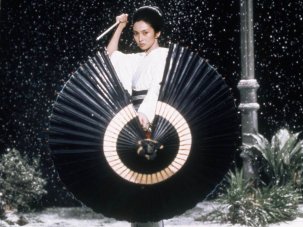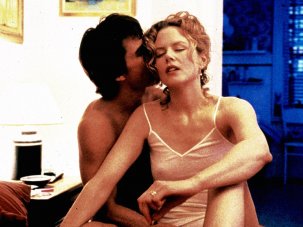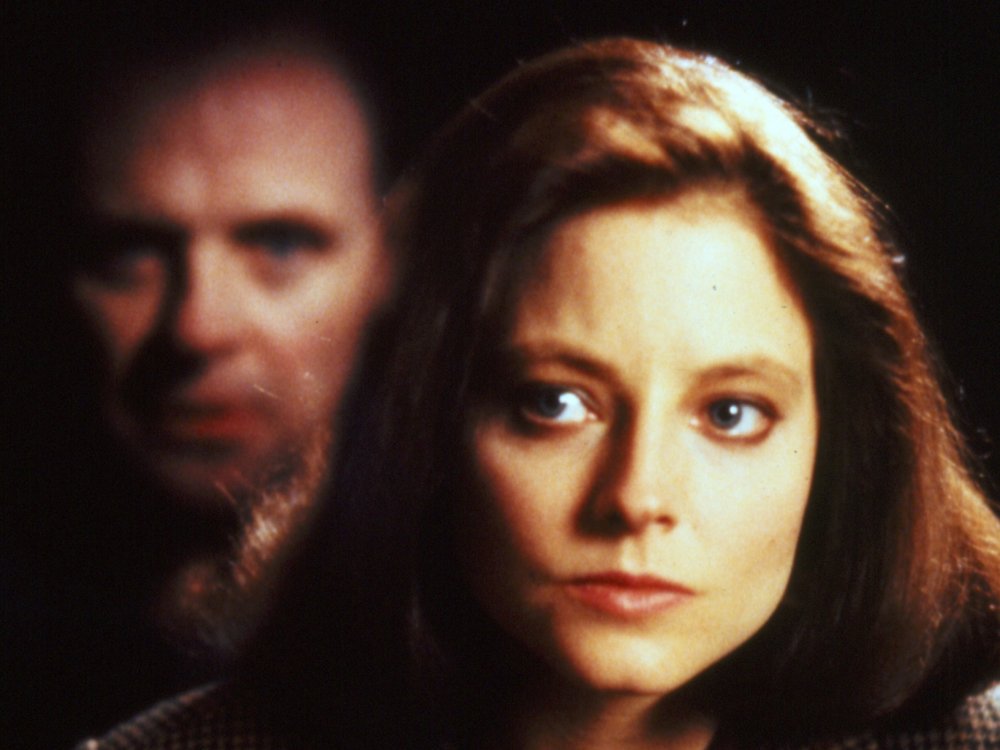
The Silence of the Lambs (1991)
This autumn the BFI will embark on a nail-biting and suspense-filled UK-wide season BFI Thriller, running from Friday 20 October – Sunday 10 December at BFI Southbank, online on BFI Player, and at selected venues across the UK. The season will feature classic film and TV screenings, preview events, a UK-wide re-release of The Silence of the Lambs (Jonathan Demme, 1991), a UK-wide touring programme in partnership with the ICO (Independent Cinema Office), a new 4K restoration BFI DVD and Blu-ray release of Henri-Georges Clouzot’s The Wages of Fear (1953) and a new BFI Compendium with contributions from writers including award-winning author Lee Child – the mind behind Jack Reacher – and critically-acclaimed author Jake Arnott (The Long Firm).
Exploring political conspiracies and paranoia, erotic thrillers, racial politics, espionage, the British thriller tradition, fake news, queer characters and femmes fatales, the project will feature leading talent on-stage, a launch event at BFI Southbank featuring a special screening of Francis Ford Coppola’s haunting surveillance thriller The Conversation (1974), which will inspire a surprise artist-led experience, and THE BIG THRILL WEEKEND at BFI Southbank on 11-12 November, offering audiences a chance to delve deeper into the genre.
Stuart Brown, BFI Head of Programme and Acquisitions said:
“In our new reality of tumultuous global politics – Brexit, Trump, cyber-espionage, the fake news epidemic and terrorism – it’s hard not to feel disorientated amid the pervasive atmosphere of fear and division. The thriller genre perfectly reflects these societal upheavals, fears and anxieties, from the murky world of cold-war era paranoia of the 1960s and 70s exemplified by Francis Ford Coppola’s masterpiece The Conversation and Alan Pakula’s seminal ‘paranoia trilogy’, through the dark twisted world of the genius serial killer in The Silence of the Lambs, to the present day Hitchcockian chiller The Killing of a Sacred Deer. Audiences love being on the edge of their seats and BFI Thriller will be a masterclass in the art of suspense, a visceral and emotional rollercoaster ride that will of course be best experienced in the dark and in front of a big screen.”
UK-wide BFI releases
On Friday 3 November the BFI will re-release a 4K restoration of Jonathan Demme’s Oscar-winning psychological thriller The Silence of the Lambs (1991). The third and final film (thus far) to win the so-called ‘big five’ Oscars (best picture, director, actor, actress and screenplay), The Silence of the Lambs was the second film to feature the cannibalistic serial killer Hannibal Lecter, following Michael Mann’s Manhunter five years earlier. It follows young FBI trainee Clarice Starling as she seeks the advice of Lecter to apprehend another serial killer known as Buffalo Bill.
A second BFI Thriller theatrical release will be announced in due course.
Classic and contemporary thrillers on the big screen at BFI Southbank
The history of big and small screen thrillers reminds audiences that they have survived in times of uncertainty and upheaval before. From the threat of the Cold War and the ever present power battles between men and women, to the rise of the Third Reich and government scandals; thrillers remind us that, despite it all, we continue to triumph over our circumstances in heart-stopping style.
Dark and dangerous women have always flourished in thrillers, and the season at BFI Southbank will take a closer look at the women in front of and behind the camera, from archetypal femmes fatales and powerful female detectives to the women who have penned some of the best-loved stories of the genre. Classic noir femmes fatales feature heavily in BFI Thriller with screenings of, among others, Double Indemnity (Billy Wilder, 1944), about an insurance salesman who is roped into a murderous scheme by Barbara Stanwyck’s classic femme fatale; and Out of the Past (Jacques Tourneur, 1947) starring Jane Greer and Robert Mitchum, in what is considered one of the greatest of all noirs.
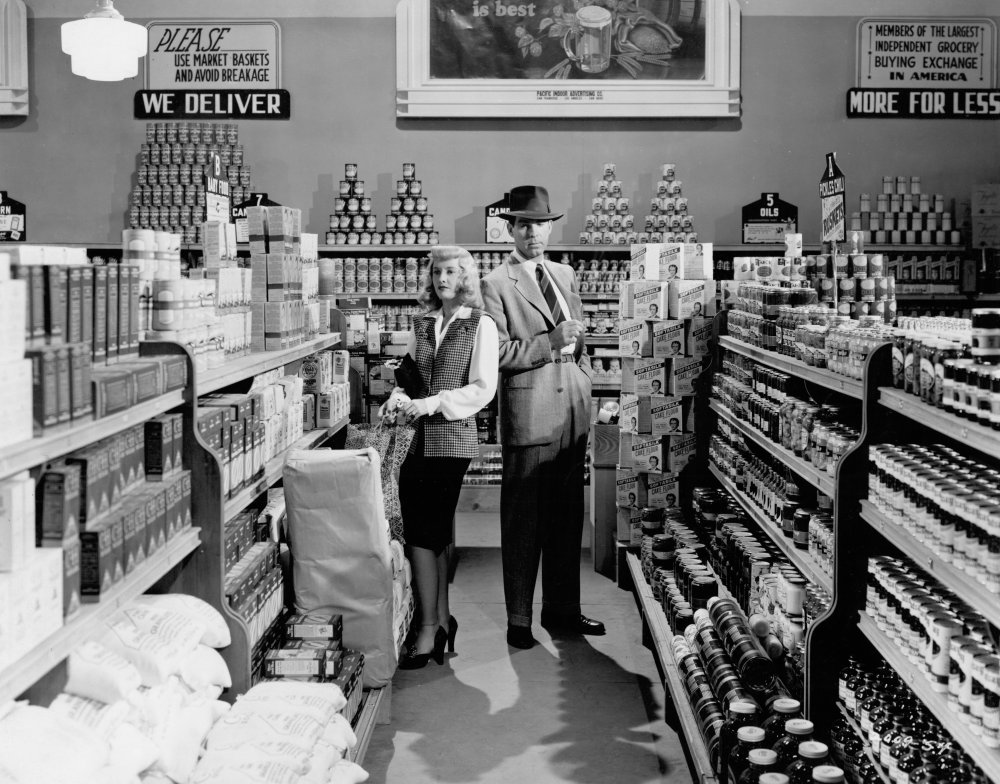
Double Indemnity (1944)
It is a common misconception that femmes fatales are exclusively the terrain of US and French noir, but a number of post-war British thrillers also featured cunning women. Screenings of Dear Murderer (Arthur Crabtree, 1947), The Long Memory (Robert Hamer, 1953), Mine Own Executioner (Anthony Kimmins, 1947) and Obsession (Edward Dmytryk, 1949), featuring vivacious vixens Greta Gynt, Elizabeth Sellars, Christine Norden and Sally Gray will show that in post-war Britain, beauty and talent were not on ration.
A new crop of women writers such as Gillian Flynn (Gone Girl) and Paula Hawkins (The Girl on the Train) have taken the world by storm with their best-selling domestic thrillers, which place female characters at their core, unsure of whether to trust the people closest to them. Their work comes from a rich tradition of thrillers, written by women about women, which have often been overlooked. Examples screening in the season include The Reckless Moment (Max Ophuls, 1949), based on The Blank Wall by Elisabeth Sanxay Holding, and starring Joan Bennett as a housewife who takes desperate measures to protect her family from scandal, and The Hand That Rocks the Cradle (Curtis Hanson, 1992), written by Amanda Silver; after her humiliated husband kills himself, an embittered pregnant widow loses her child, and embarks on a mission of vengeance.
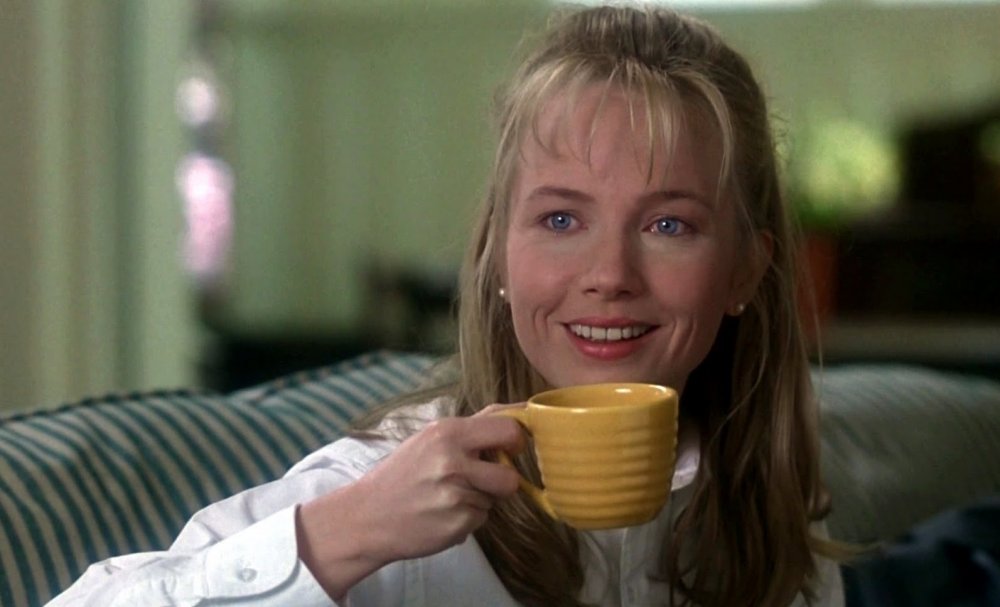
The Hand That Rocks the Cradle (1992)
Other films that place women front and centre will include 90s neo-noirs like The Last Seduction (John Dahl, 1994) about a devious woman who steals her husband’s drug money and hides out in a small town where she meets the perfect dupe for her next scheme; and Bound (The Wachowskis, 1996) which sees a tough ex-con and her lover Violet concoct a scheme to steal millions of stashed mob money and pin the blame on Violet’s crooked boyfriend. The programme will also include a special event looking at the role of women in the contemporary TV thriller. Traditionally, female roles have either been the terrorised victim or the female detective surviving in a male dominated world (Prime Suspect, The Fall, Happy Valley). But recently there has been an emergence of TV thrillers such as Apple Tree Yard and The Replacement, that place women at the centre of the plot in their own right – they live ordinary lives overtaken by dark events, and critically they fight to take back control of their lives, not as victims, but as rounded individuals who triumph against adversity.
BFI Thriller will also feature a selection of exciting conspiracy and paranoia thrillers including Alan J Pakula’s ‘paranoia trilogy’, Klute (1971), The Parallax View (1974) and All the President’s Men (1976); Francis Ford Coppola’s The Conversation (1974) starring Gene Hackman as a surveillance expert whose morals are put to the test; the first film Fritz Lang’s Dr Mabuse series Dr Mabuse, The Gambler (1922); political thriller The Manchurian Candidate (John Frankenheimer, 1962); and Jordan Peele’s hit ‘social thriller’ Get Out (2017), which depicts the racial anxieties which arise when a black man meets his white girlfriend’s parents for the first time.
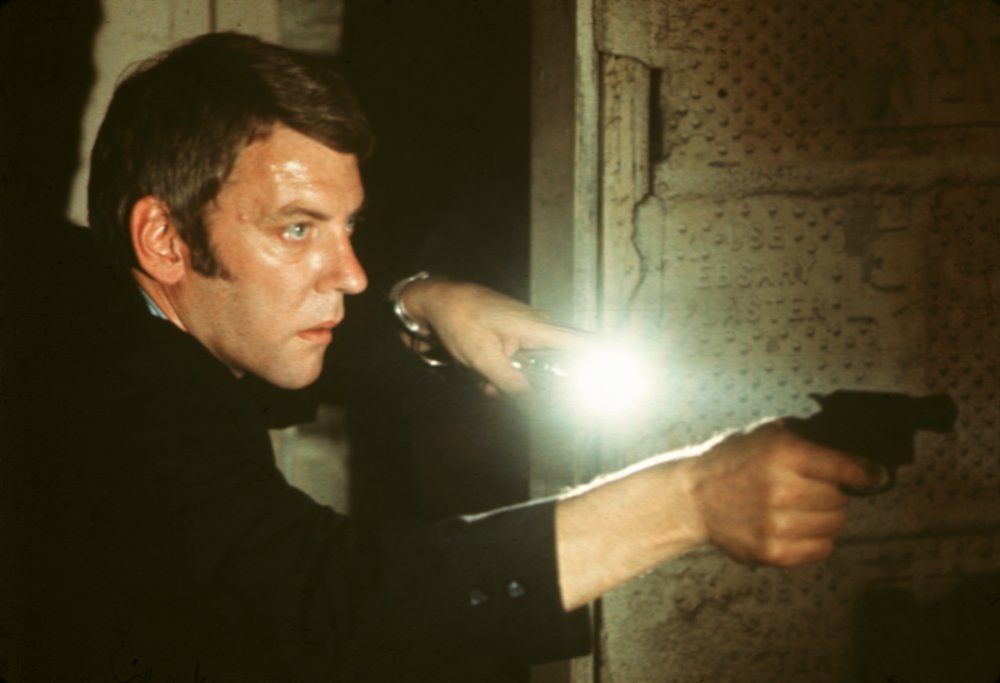
Klute (1971)
Paranoia and conspiracy will also manifest in an event looking at the connections between the contemporary thriller on TV and modern day concerns over terrorism, crisis of faith in the establishment and the rise of political populism. With a panel drawn from the finest exponents of the contemporary TV thriller, this event will examine the ways that these themes manifest in contemporary shows such as The Honourable Woman, Utopia and the Red Riding Trilogy, compared to the way they were tackled in the past, by famous TV thrillers such as Edge of Darkness, State of Play, Callan and The Prisoner. The latter two shows, Callan and The Prisoner, both celebrate their 50th anniversary in 2017, and BFI Thriller will mark the occasion with special events dedicated to both of these groundbreaking shows.
A season of thrillers would be incomplete without the master of suspense, Alfred Hitchcock, and there will be a chance to see classic Hitchcock films like The 39 Steps (1935) and Psycho (1960). Alongside Psycho, there will also be an extended run of new documentary 78/52 (Alexandre O Philippe, 2017), which takes an unprecedented look at the iconic shower scene in Hitchcock’s masterpiece, the “man behind the curtain”, and the screen murder that profoundly changed the course of world cinema. There will also be an extended run of new ‘Hitchcockian’ thriller The Killing of a Sacred Deer (Yorgos Lanthimos, 2017), which won the award for best screenplay at this year’s Cannes Film Festival.
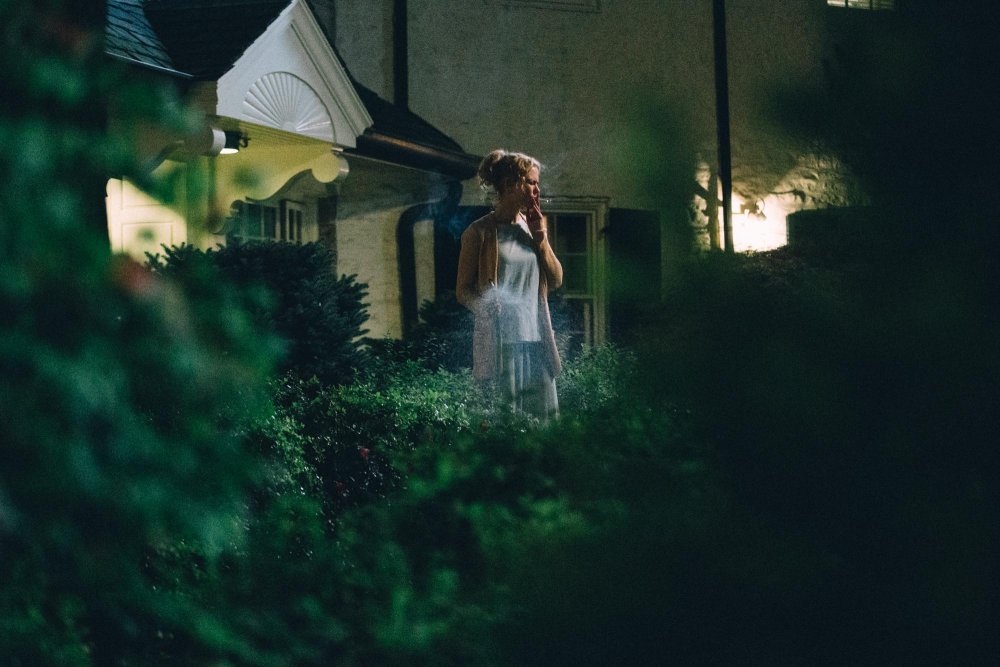
The Killing of a Sacred Deer (2017)
The Big Thrill Weekend will take over BFI Southbank from 11-12 November. This ambitious, festival-inspired weekend of agenda-setting talks, ideas, screenings, masterclasses and panel discussions will explore the thriller as the genre of our anxious times. The Big Thrill will have three narrative threads – or talking points – that will permeate all the events and interconnect with each other. TRUTH will examine non-fiction as thrillers, the proliferation of fake news, and the ethics in true-crime storytelling; TECH will include masterclasses on sound design, editing and composition, an interactive exploration of internet culture, surveillance and voyeurism, gaming and hackathon events and immersive VR experiences; SOCIAL ANXIETY will explore the work of key figures such as Adam Curtis, Charlie Brooker, Shonda Rhimes and Paula Hawkins, the relationship between historical moments and thrillers, and erotic thrillers and the era of nasty women.
BFI Thriller will also include Big Thrill Double Bills, taking place on Saturdays throughout the season; Hitchcock will also feature here, with a pairing of Rear Window (1954) in which a wheelchair-bound James Stewart spies on his neighbours, and Body Double (1984), in which director Brian DePalma pays deliberate homage to Hitchcock with the story of a young actor’s obsessive spying on a beautiful woman.
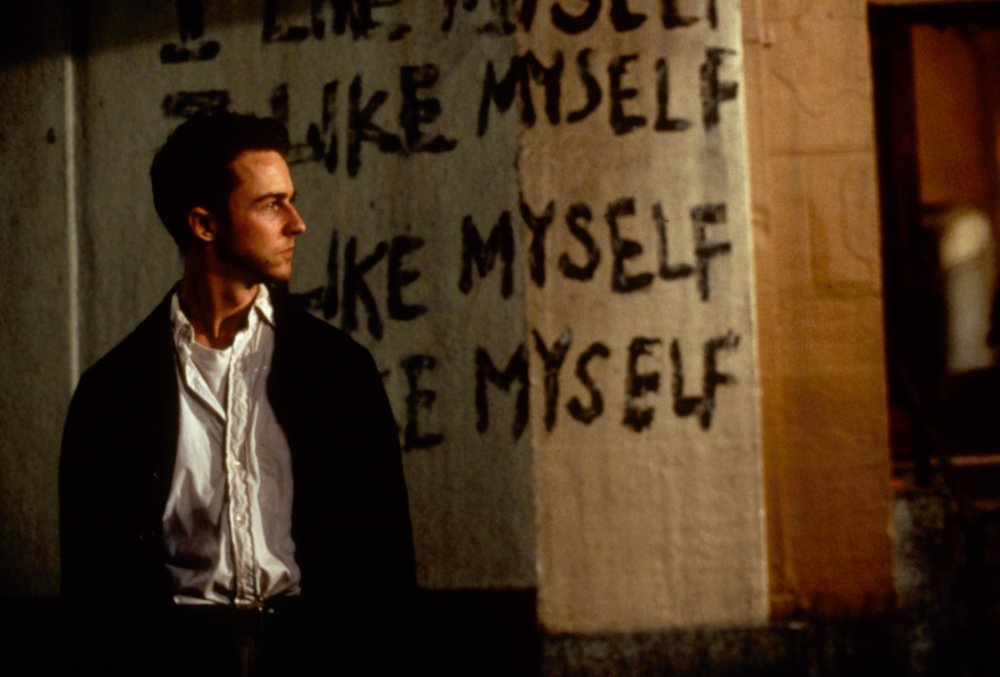
Fight Club (1999)
Other double-bills featured will include David Fincher’s Fight Club (1999) and The Game (1997); and a pair of adrenaline-fuelled thrillers set in Berlin: Run Lola Run (Tom Tykwer, 1998) and Victoria (Sebastian Schipper, 2015). Regular BFI Southbank programming strands will also reflect the genre. These will include an African Odysseys double bill of Vaya (Akin Omotoso, 2016) and Wulu (Daouda Coulibaly, 2016), BFI Flare screenings of erotic thriller Dressed to Kill (Brian De Palma, 1980), and screenings of contemporary Indian thrillers NH10 (Navdeep Singh, 2015) and Jigarthanda (Karthik Subbaraj, 2014), which also form part of the BFI’s continuing India on Film programme.
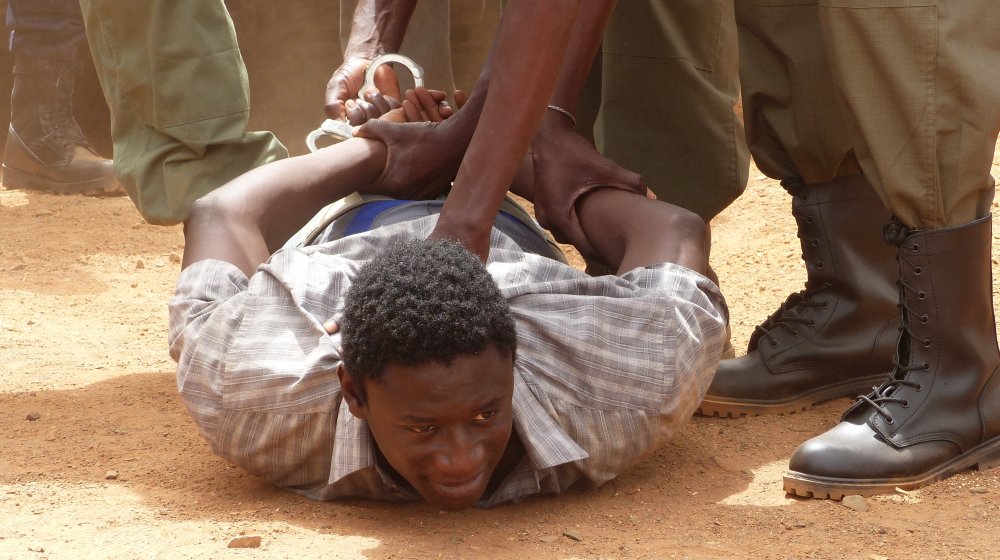
Wùlu (2016)
Books and DVDs
Following its premiere at this year’s Cannes Classics, released on Monday 23 October on BFI DVD and Blu-ray in a dual format edition, will be a new 4K restoration of Henri-Georges Clouzot’s The Wages of Fear (1953). Critically hailed upon its original release, winning prizes at Berlin and Cannes, as well as the BAFTA for best film, The Wages of Fear has maintained its reputation as a classic of world cinema. Director Christopher Nolan recently cited the film as an influence on his nail-biting box-office smash Dunkirk (2017), picking it to screen at BFI Southbank as part of a season of films he curated. Based on the 1950 French novel Le Salaire de la peur, the film tells the story of an oil well in a South American village which catches fire; the company who own it quickly hire four desperate European men to drive trucks loaded with highly volatile nitroglycerine needed to extinguish the flames. The film brought Clouzot international fame and he went on to direct Les Diaboliques, the film which cemented his reputation as the ‘French Hitchcock’. The Wages of Fear will also be made available to rent on BFI Player from Monday 23 October as part of BFI Player’s BFI Thriller collection.
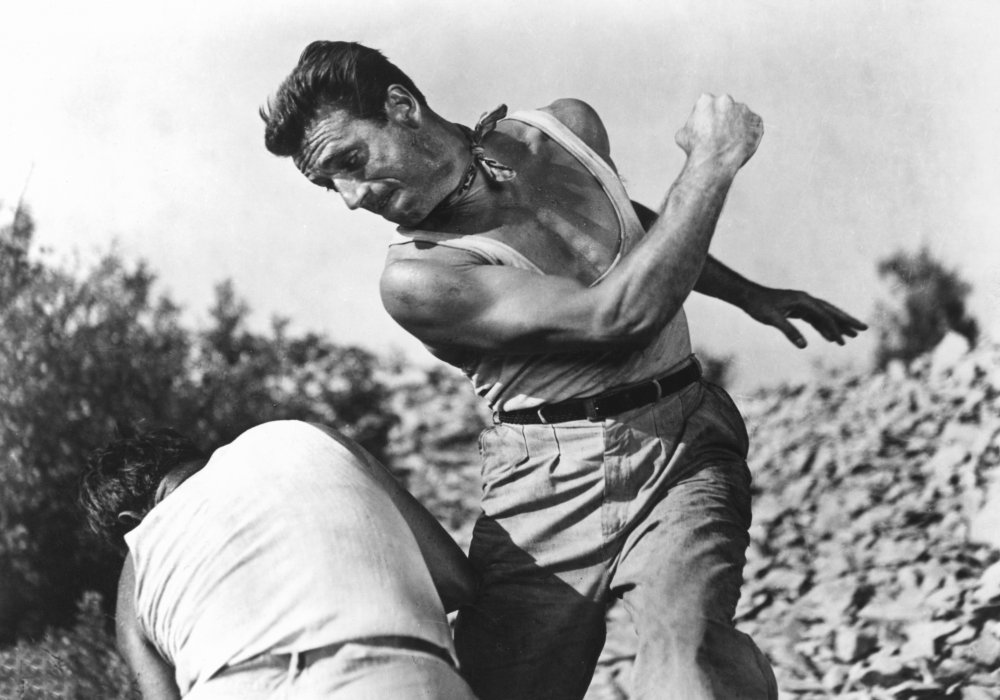
The Wages of Fear (1953)
Released to coincide with the start of the season, there will be a new BFI Thriller Compendium with contributions from critics, academics and authors including Jake Arnott (The Long Firm) and Lee Child (Jack Reacher). Lavishly illustrated and reflecting a number of the themes addressed by the BFI Thriller season, the new compendium will touch on subjects such as political conspiracies, erotic thrillers, racial politics in thrillers, espionage, the British thriller tradition, fake news, pulp ‘b-movie’ thrillers, queer characters in thrillers and femmes fatales.
Gloria Grahame season at BFI Southbank
Running concurrently alongside BFI Thriller, BFI Southbank will also present a season of films celebrating the irresistible and alluring Gloria Grahame. The season will tie in with the release of Film Stars Don’t Die in Liverpool (Paul McGuigan, 2017), about the passionate relationship between British actor Peter Turner and the Academy Award-winning actress, starring Annette Bening and Jamie Bell. Graham was most famous for her femmes fatales roles in films such as In a Lonely Place (1950), The Big Heat (1953), Sudden Fear (1952) and Human Desire (1954), all of which will be screened alongside non-thriller titles she starred in, shining a spotlight on her formidable talent.
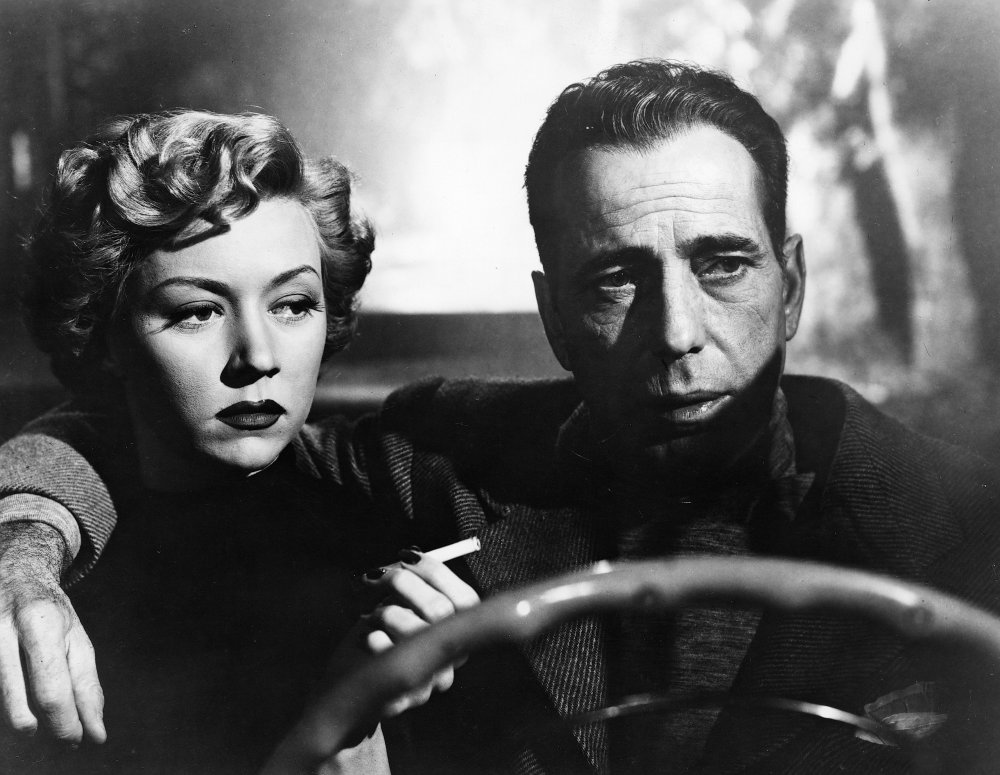
In a Lonely Place (1950)
BFI Player
BFI Player will feature a wide selection of thrillers across its three service strands – rentals, subscription and free – with more than 100 titles being made available across the service. The latest thrillers such as Get Out (Jordan Peele, 2017) will be available to rent alongside a selection of classic and modern titles like The Wages of Fear (Henri-Georges Clouzot, 1953), Rear Window (Alfred Hitchcock, 1954) and The Hurt Locker (Kathryn Bigelow, 2008).
BFI Player’s subscription service BFI Player+ will focus on British classics and cult European thrillers, while a selection of newly digitised archive rarities will also be made freely available for the first time. BFI Player will also offer a comprehensive history of the British thriller, from the key works of Alfred Hitchcock and Carol Reed through to recent favourites from Ben Wheatley, as well as focusing on lesser known stories such as Hammer Films’ early specialism in the genre before it moved into horror.
UK-wide
Ten BFI Thriller titles will be made available to cinemas and community venues across the UK through a touring programme coordinated by the ICO (Independent Cinema Office), with a view to thrilling audiences the length and breadth of country.
Danger, Deception and Deceit: the European Political Thriller in the 1970s, a new season of 18 films at HOME, Manchester, 4 Nov-10 Dec 2017; with Q&As, intros, workshops, podcasts and programme notes; kicking off with the landmark feature Z (Costa Gavras, 1969). Audiences of all ages will discover and revisit a vital period in film history that still influences how politically engaged filmmakers embrace popular forms and genres, using the thriller to explore conspiracies, authoritarian regimes and political violence. 10 of these films will go on tour across the UK between Nov 2017 and Jan 2018, with at least 115 screenings taking place across the country.
Further UK-wide BFI Thriller events will be announced in the coming months.
Into Film Festival
The Into Film Festival 2017 will take place from 8-24 November, with 3,000 free screenings and events, supported by teaching resources, to engage, inspire and educate young people through the medium of film. This year the festival aims to reach 500,000 5-19 year olds and their educators from all backgrounds and corners of the UK and continues to be the largest free, youth film festival in the world. The BFI Thriller strand is one of six strands in the festival and one which has been programmed by young people from Into Film’s Youth Advisory Council, and the BFI’s Film Audience Network led, Young Programmers Network.



